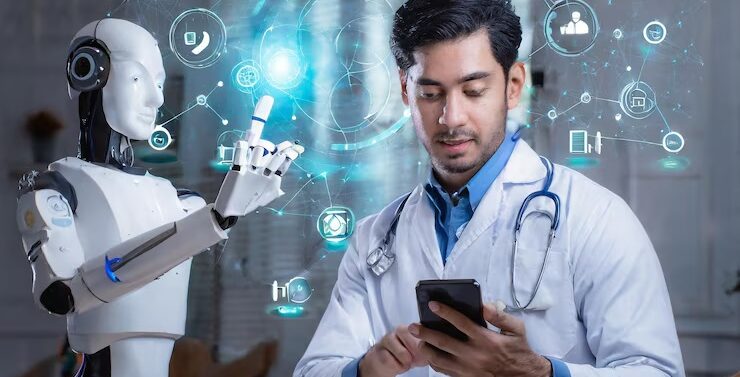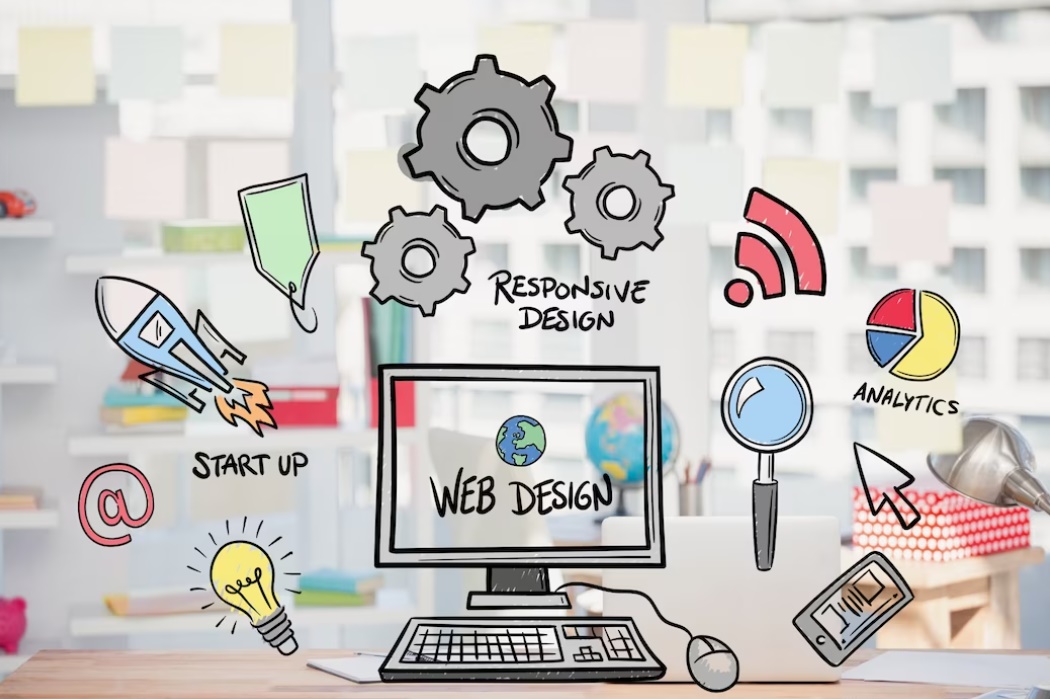Artificial intelligence is far beyond just a buzzword. It can potentially transform every field, such as manufacturing, IT, finance, entertainment and media, healthcare, and more. AI is taking over the world, making tasks more straightforward and organized. Well, complete reliance on AI technology is also not a go-getter option. As stated, prior, AI has implications in a wide range of sectors. Amidst this, healthcare is something that holds center stage. According to Statista, the AI healthcare market was valued at $11 billion in 2021 and is anticipated to be $187 billion in 2030.
Don't worry! In this article, we'll discuss the use of AI in healthcare, including its types, benefits, challenges, and future.
What is AI in Healthcare?
AI in healthcare is defined as the use of machine learning, artificial intelligence, deep learning, and other technologies to boost the experience of healthcare professionals and patients. AI offers a range of benefits over traditional healthcare methods and systems.
One noteworthy aspect of AI is that it has predictive capabilities that help to understand the training data. Further, healthcare professionals can work on it and gain insights into diagnostics, treatment, and patient results.
Major Types of AI Technologies in Healthcare
Machine Learning
The primary role of machine learning in healthcare is precision medicine. This means predicting the best treatment protocols for each patient based on their characteristics.
Natural Language Processing
Natural language processing involves thorough understanding and the creation and publishing of research. It also helps to create reports, notes, etc.
Robotic Process Automation (RPA)
The primary role of AI in computer programs is to automate clinical and administrative workflows. Additionally, healthcare organizations use RPA to enhance the patient's experience.
Opportunities and Challenges of AI in Healthcare
To better understand the context of AI in healthcare, it's important to stay updated on the advantages and challenges of using it in the profession.
Benefits of AI in Healthcare
The following are the benefits of AI in healthcare. It enhances the efficiency of all tasks, right from the back-end processes to well-informed decision-making, patient treatment, and care.
1] Less Invasive Surgeries
AI-enabled robots are a great benefit. They can be worked around sensitive body organs and tissues, helping to reduce surgery pain, blood loss, and other types of infections.
2] Better Patient Care
If implemented in the right way, AI in healthcare improves the patient. This is done by reducing errors that humans tend to make, research time, and more. Furthermore, using AI can also give healthcare professionals the right, timely patient treatment plan. This ultimately adds value to their healthcare journey.
3] Customer Service Chatbots
Chatbots have lately become an easy source of communication regardless of the time. In the healthcare sector, chatbots are developed with NLP technologies. This makes it super easy for patients to book appointments, pay bills, communicate with medical professionals, and more.
Furthermore, chatbots offer patients the required solutions, allowing experts to focus on what matters most.
4] Handles Administrative Tasks
Time management is critical in every field. Medical professionals can save time by outsourcing the rest of the data entry work, scanning analysis, and patient records to easy-to-use AI software.
They don't have to continue doing paperwork and other administrative tasks. AI and automation can efficiently perform these mundane tasks.
For example, generative AI can help clinicians take notes and summarize the content.
5] Reduce the Dosage Errors
An alarming point is that even a single medicine dose can affect the patient's body. Thus, the patient must take the right amount of medicine as prescribed. With Artificial intelligence, we will reduce the anticipated errors in medication.
Cons of AI in Healthcare
Training Complexities
Learning AI technologies is not a tough job; however, you must possess the required skills and expertise to use it effectively. Thus, medical professionals need to receive training to start with AI technology.
Unemployment
We can't deny that robots make everything and anything possible in no time. It was often said that robots would take over the world and steal our jobs. However, AI has now been a significant risk to all sectors, and healthcare is not an exception. The introduction of AI means most administrative tasks are made redundant.
High-Security Risk
Cyberattacks are growing at the fastest pace. Hackers can compromise patients' data at any time and steal it. In addition, AI systems lead to a higher security risk, which becomes a challenge in the healthcare industry. Thus, medical hospitals must invest heavily in security to avoid cyber criminals.
Possible Overreliance
Overreliance on AI-generated recommendations may reduce healthcare professionals' judgment and critical thinking. This is one of the major cons of using AI in healthcare.
Interoperability Concerns
Issues may arise between the current healthcare system and emerging data platforms.
The Future of AI in Healthcare
Although there are positives and negatives related to artificial intelligence in healthcare, it's evident that it's seen as good. This will continue to develop and be used widely in the future as well. Medical professionals are anticipated to depend on AI for guidance and support, offering timely and accurate support to patients.
AI aims to avoid human error, streamline the medical process, and enhance care delivery.
You may Also Like:
What is 3D Secure Payment? Know it Here
Mitigating the Harm: Strategies for Combating Deepfake Misuse





